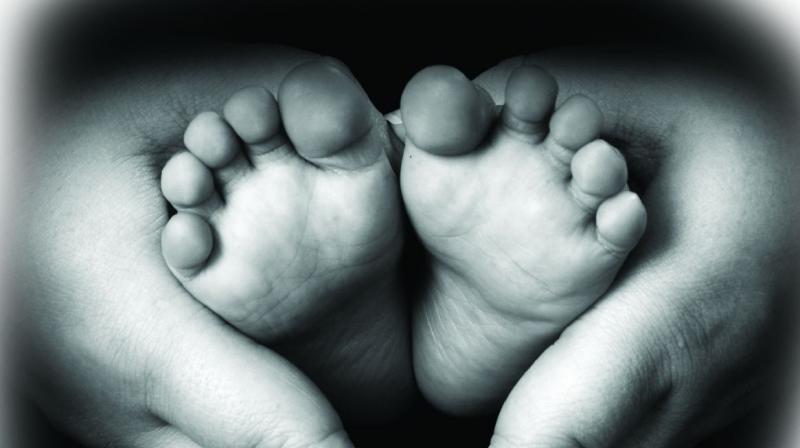
In recent years, many women are choosing to delay motherhood until their mid-30s or later. Career ambitions, financial security, and personal goals often shape this decision, reflecting a growing sense of autonomy and control over life’s milestones. While this trend empowers women to embrace parenthood on their terms, it also brings unique challenges. Understanding these realities and advances in modern medicine can help women make informed choices about their fertility and family planning.
The Biological Clock: A Timeless Truth
Declining fertility with age is an undeniable biological reality. As a woman turns 35, her chances of conceiving naturally begin to decline. Here are the main factors driving this decline:
Egg quality and quantity: A woman is born with a limited number of eggs, which decrease in both quality and quantity with age. In her mid-30s, this natural decline often leads to a lower chance of conception and a higher risk of miscarriage.
Chromosomal Abnormalities: Aging eggs are more prone to chromosomal errors, increasing the chance of conditions like Down syndrome due to improper segregation during fertilization.
Hormonal changes: Hormonal changes can disrupt ovulation, lead to irregular cycles, missed ovulation, or difficulties maintaining pregnancy.
Pregnancy risks: Older mothers are at higher risk for complications such as gestational diabetes, preeclampsia, and aging-related conditions such as fibroids or endometriosis, which can hinder conception or increase risk during pregnancy.
The emotional landscape of delayed motherhood
For many women over 35, the road to motherhood can feel like a race against time. Anxiety about the “biological clock” often creates a sense of urgency, overshadowing the joy of starting a family. Fertility struggles can cause stress in relationships, increasing stress and increasing feelings of inadequacy.
Furthermore, societal expectations—which often associate motherhood with youth—add to the emotional burden. Women are left to navigate the delicate balance between personal aspirations and the pressure to conform to traditional timelines. Open communication, emotional support, and reframing these stories are essential to help women find peace and clarity during this journey.
The Silver Lining: Modern Medicine and Fertility Solutions
The challenges of conceiving after 35 are real, but so are the opportunities. Advances in fertility medicine have opened new doors for women who want to have children later in life:
Assisted reproductive technology (ART): Technologies such as in vitro fertilization (IVF) and egg freezing have revolutionized fertility care. IVF enables fertilization outside the body, providing a pathway to parenthood even when natural conception proves challenging. Egg freezing allows women to preserve their eggs at an early age, preserving their fertility for the future.
Donor Eggs: For those with reduced egg quality, donor eggs from younger women offer a viable and effective alternative, avoiding the challenges associated with aging eggs.
Genetic testing: Preimplantation genetic testing (PGT) screens embryos for chromosomal abnormalities before implantation, improving IVF success rates and reducing the risk of genetic conditions.
Active Fertility Checkups: Ovarian reserve testing and other diagnostic tools empower women to plan their families with greater precision while ensuring they are informed about their reproductive health.
Enhanced Maternal Care: Advances in prenatal care and maternal health monitoring have led to significant improvements for older mothers, making pregnancy safer and more manageable.
Beyond Medicine: Lifestyle and Fertility
While age is a major factor, lifestyle choices also play an important role in maintaining fertility and overall reproductive health. Women over 35 can take proactive steps to optimize their chances of conception and a healthy pregnancy:
A healthy diet: A nutrient-dense diet supports hormone balance and egg quality. Foods rich in antioxidants, folic acid and omega-3 fatty acids are particularly beneficial.
Regular exercise: Moderate physical activity improves blood circulation, reduces stress, and supports overall well-being.
Stress Management: High stress levels can disrupt hormonal function. Practices such as yoga, meditation, or mindfulness can increase emotional resilience and improve fertility outcomes.
Avoiding harmful habits: Smoking, excessive alcohol consumption, and exposure to environmental toxins can accelerate egg loss and negatively affect reproductive health. Eliminating these habits can significantly improve fertility chances.
Embrace empowerment: Knowledge is key
There are barriers to fertility after 35, but it’s also a time when women can take control of their reproductive health like never before. By staying informed, prioritizing health, and seeking guidance from fertility experts, women can make empowered decisions about their motherhood journey.
The path to parenthood may look different for every woman, but one thing is certain: the possibilities are greater than ever. Modern medicine, combined with healthy lifestyle choices, ensures that women can embrace motherhood on their own terms, whether 25, 35, or older.
A final thought
The trend toward late motherhood reflects a broader societal shift toward greater autonomy and choice for women. While it’s important to acknowledge biological challenges, it’s equally important to celebrate the opportunities and advancements that make motherhood after 35 a possible and fulfilling reality. For women navigating this path, the key is to act with intention, seek support, and believe that the dream of starting a family is within reach—at any age.